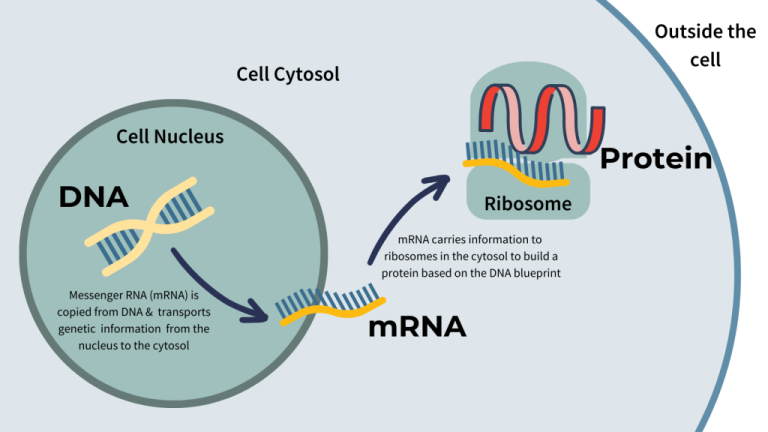
mRNA Technology
mRNA Technology
What is mRNA?
Messenger RNA (mRNA) is pivotal to human biology, serving as the bridge that conveys DNA instructions for the creation of vital proteins in every living cell. By harnessing mRNA-based treatments, we can direct a patient's cells to generate proteins that prevent, treat, or even cure diseases. This groundbreaking approach offers the promise of personalized and effective medical interventions.
mRNA Technology
Messenger RNA (mRNA) vaccines represent a cutting-edge technology, first explored experimentally in 2014. Instead of using the whole virus, mRNA vaccines employ specific viral segments believed to trigger antibody production. Their distinct advantage lies in simulating the virus using just a fragment of it. Globally, several entities are at the forefront of mRNA vaccine research. Among the most notable are Moderna, BioNTech, CureVac, and AviceRNA. These trailblazers are expanding the horizons of mRNA technology, targeting not only infectious diseases but also venturing into cancer therapies. As of now, they're conducting numerous clinical trials focused on both infectious diseases and oncology.
mRNA Vaccines
Introduced in 2014, mRNA vaccines are a novel technology that utilizes specific viral segments to trigger antibody responses, instead of the entire virus. This innovative approach has garnered the attention of leading research entities worldwide, including Moderna, BioNTech, CureVac, and now AviceRNA. These pioneers are exploring mRNA's potential not just for infectious diseases, but also for potential cancer therapies.
The development of mRNA vaccines can be simplified into three stages:
Design: Target DNA, whether from a virus or related to cancer, is digitally conceived.
Synthesis: This DNA is synthesized and then transcribed into RNA.
Administration: The RNA is packaged within lipid nanoparticles similar to cell membranes, making it ready for injection.
Once administered, cells absorb the mRNA and produce the targeted viral or cancer protein, eliciting an immune response. Notably, this technology can swiftly adapt to viral mutations, a significant advantage in our rapidly changing world.
mRNA vaccines' agility in design and adaptability positions them as frontrunners in the fight against various pathogens and diseases like cancer.

